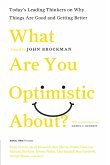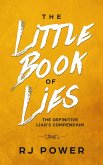Structure:
Chapter One: 50 Lies opens the book by analyzing common everyday deceptions like "I'm fine" and "Just one more minute," revealing how these seemingly innocuous statements serve as social lubricants while masking deeper truths. Each lie is examined not just for its surface meaning, but for what it reveals about human nature, social dynamics, and our complex relationship with honesty.
Chapter Two: 50 Lies likely expands into more complex social and institutional deceptions-perhaps exploring corporate, political, or media falsehoods that operate at a broader scale than personal lies. This middle section bridges the gap between individual psychology and systemic patterns of misinformation.
Chapter Three: 50 Lies would complete the collection, potentially delving into our deepest self-deceptions, existential falsehoods, or the grand cultural narratives that shape societal beliefs and behaviors, bringing the examination full circle.
Through clear, engaging prose, the book categorizes 150 lies across different domains of human experience-from casual social interactions to profound philosophical deceptions. Rather than simply condemning dishonesty, "150 Lies" takes a nuanced approach, acknowledging how certain deceptions help us navigate complexities while others undermine our connections and authenticity.
Perfect for readers interested in psychology, communication, and social dynamics, this three-chapter exploration transforms our understanding of everyday deceptions into a profound examination of human behavior and the stories we tell ourselves about who we are.
Dieser Download kann aus rechtlichen Gründen nur mit Rechnungsadresse in A, B, CY, CZ, D, DK, EW, E, FIN, F, GR, H, IRL, I, LT, L, LR, M, NL, PL, P, R, S, SLO, SK ausgeliefert werden.









